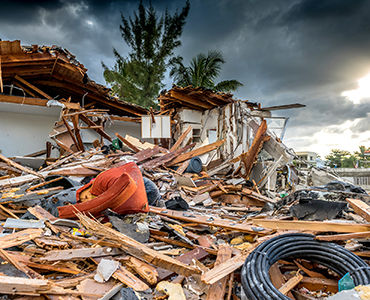The IRS has provided expansive tax relief for wildfire victims in Maui and Hawaii counties. Taxpayers who reside or have a business in these counties (disaster area) will have until February 15, 2024, to file various federal individual and business tax returns and to make certain tax payments. (IR 2023-151, 8/18/2023)
Postponed deadlines. As part of this disaster tax relief, the IRS has postponed various filing and payment deadlines beginning August 8, 2023, to February 15, 2024. The postponed deadlines include:
- Individuals with valid extensions, to October 16, 2023, to file their 2022 return.
- Quarterly estimated income tax payments normally due on September 15, 2023, and January 16, 2024.
- Quarterly payroll and excise tax returns normally due on October 31, 2023, and January 31, 2024.
- Calendar-year partnerships and S corporations with 2022 extensions to September 15, 2023.
- Calendar-year corporations with 2022 extensions to October 16, 2023.
- Calendar-year tax-exempt organizations whose extensions run out on November 15, 2023.
Note. The IRS disaster relief page has details on other returns, payments and tax-related actions qualifying for this relief.
The IRS will also abate penalties for the failure to make payroll and excise tax deposits due on or after August 8, 2023, and before September 7, 2023, if the deposits are made by September 7, 2023.
Note. Tax payments due in April 2023 for 2022 returns are not covered by this relief.
Automatic relief. The IRS will automatically provide this tax relief to any taxpayer with an IRS address of record located in the disaster area. The IRS asks taxpayers in the affected counties who receive a late filing or late payment penalty notice to call the number on the notice to have the penalty abated.
Taxpayers who live or have a business outside the disaster area, but whose tax records are in the affected area, and other taxpayers, including certain relief workers, should contact the IRS at 866-562-5227, to have any penalties abated.
Disaster losses. Individuals and businesses in the disaster area who suffered uninsured or unreimbursed disaster-related losses can elect to claim them on either the year of loss return (in this instance, the 2023 return normally filed next year), or the prior year return (2022). Taxpayers have up to six months after the due date of the taxpayer’s federal income tax return for the disaster year (without regard to any extension of time to file) to make the election. Taxpayers should write the FEMA declaration number − DR-4724-HI − on any return claiming a disaster loss.
Qualified disaster relief payments. Generally, qualified disaster relief payments are excluded from gross income. This means that disaster victims can exclude from their gross income amounts received from a government agency for reasonable and necessary personal, family, living or funeral expenses, as well as for the repair or rehabilitation of their home, or for the repair or replacement of its contents.
Additional tax relief. Taxpayers may be entitled to additional tax relief, including the ability to take a special penalty-free disaster distribution from a retirement plan or individual retirement arrangement (IRA) or to make a hardship withdrawal.
For more information about claiming disaster losses, see Checkpoint’s Federal Tax Coordinator ¶ M-2000.
Get all the latest tax, accounting, audit, and corporate finance news with Checkpoint Edge. Sign up for a free 7-day trial today.


